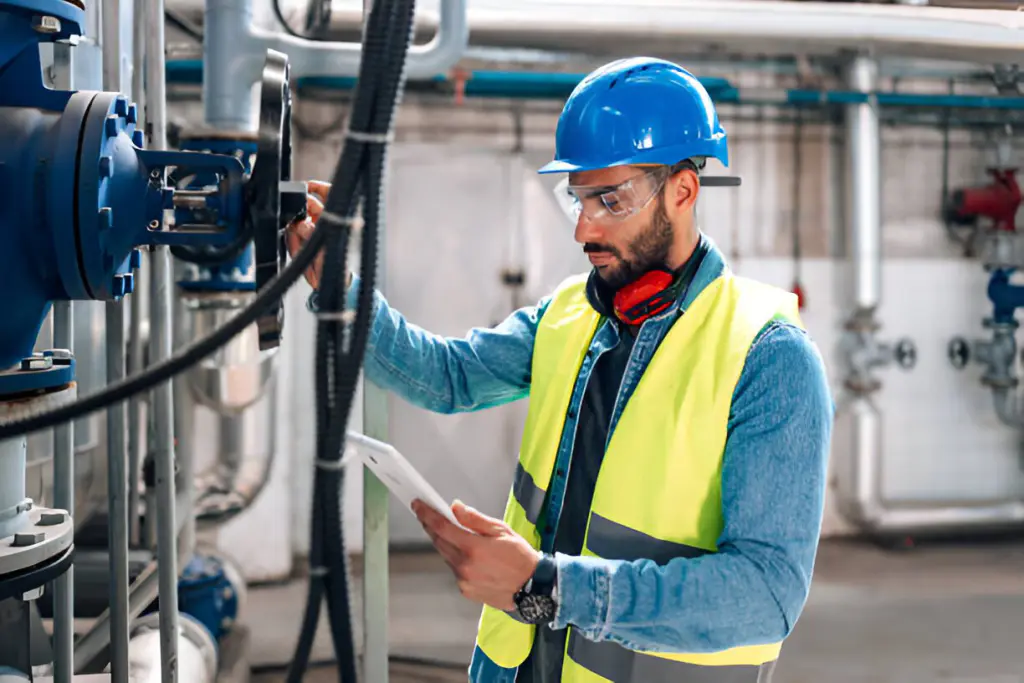Ensuring the safety of my tenants is crucial, but do landlords truly need a gas safety certificate every single year?
The frequency of these inspections might surprise you, and the reasons behind this requirement are essential for maintaining a secure rental property.

Let’s explore the regulations surrounding gas safety certificates and why staying up-to-date with these inspections is not just a legal obligation but also a matter of tenant well-being and landlord responsibility.
Landlord Responsibilities and Gas Safety
Ensuring the annual maintenance and safety of gas appliances and systems falls under the key responsibilities of landlords in compliance with regulatory standards. Gas appliance maintenance is crucial for tenant safety, encompassing regular servicing and adherence to manufacturers’ guidelines.
Landlord obligations extend to conducting annual safety checks, a process mandated by gas safety regulations, ensuring the proper functioning of appliances and pipework. These annual safety checks, performed by Gas Safe registered engineers, involve comprehensive tests on appliances and flues to detect any potential hazards or malfunctions.
Providing tenants with a Gas Safety Certificate within 28 days of the inspection is paramount, as is retaining a copy for two years. By fulfilling these duties diligently, landlords contribute significantly to tenant safety measures and uphold the legal requirements outlined in gas safety regulations.
Prioritizing these responsibilities not only adheres to the law but also mitigates risks associated with faulty gas appliances, safeguarding tenants and maintaining compliance with gas safety standards.
New Tenants and Gas Safety Certificates
When a new tenant is ready to move in, it’s essential for landlords to verify the recentness of the Gas Safety Certificate. As part of ensuring tenant safety, landlords should conduct thorough appliance inspections and adhere to safety measures outlined in gas safety regulations.
It’s the landlord’s obligation to maintain gas appliances properly and provide new tenants with a valid Gas Safety Certificate before they occupy the premises. Tenant education plays a crucial role in promoting gas safety awareness, emphasizing the importance of regular maintenance and prompt reporting of any gas-related concerns.
To uphold safety standards, landlords must engage Gas Safe registered engineers for inspections and keep detailed records of maintenance checks. By following these maintenance tips and fulfilling their regulatory duties, landlords can create a safe living environment for tenants and mitigate potential risks associated with gas appliances.
Importance of Gas Safety
Gas safety is paramount for protecting lives and properties in rental accommodations. Gas safety regulations mandate that landlords have specific obligations to ensure the safety of tenants.

Landlords must conduct preventative measures such as annual gas safety checks by Gas Safe registered engineers. These checks include inspecting gas appliances, testing pipework for leaks, and recording gas pressure levels.
Providing tenants with Gas Safety Certificates within 28 days of the inspection is crucial. Tenant awareness of safety precautions is essential, as doubts about appliance functionality should prompt immediate action. Preemptive checks not only prevent potential hazards like carbon monoxide poisoning but also protect the safety of new tenants.
Adherence to gas safety regulations not only safeguards lives but also ensures compliance with legal requirements. By prioritizing gas safety, landlords fulfill their duty of care and maintain a secure living environment for tenants.
Gas Safety Certificate Compliance
Landlords must provide tenants with a Gas Safety Certificate within 28 days of the Gas Safety Check conducted by Gas Safe registered engineers. Gas Safety Check Frequency mandates an annual inspection by Gas Safe engineers. Landlord Obligations include ensuring that gas safety checks are done by registered engineers and providing tenants with the certificate promptly.
Safety Inspection Requirements encompass a thorough examination of gas appliances, pipework, and flues for leaks, proper functioning, and compliance with regulations. The Certificate Renewal Process necessitates obtaining a new Gas Safety Certificate annually and retaining a copy for two years.
Compliance Regulations dictate strict adherence to legal requirements, emphasizing the importance of Gas Safety Checks in safeguarding tenant well-being and meeting regulatory standards. Landlords must prioritize compliance with these regulations to ensure the safety and security of their tenants and avoid severe repercussions for neglecting gas safety protocols.
Consequences of Neglecting Gas Safety
Neglecting gas safety protocols can result in severe consequences for both landlords and tenants, including the risk of carbon monoxide poisoning and potential gas leaks from faulty appliances. Landlords have a legal obligation to conduct regular risk assessments on gas appliances to ensure they’re safe for use. Failure to adhere to safety measures and neglecting gas appliance maintenance can lead to hazardous situations.
Landlord obligations include providing tenants with a Gas Safety Certificate to demonstrate compliance with regulations and ensure tenant awareness of potential risks. Ignoring these responsibilities can’t only endanger the safety and health of tenants but also result in legal consequences for landlords.
Our Gas Services
Domestic Gas Safety Certificate.









